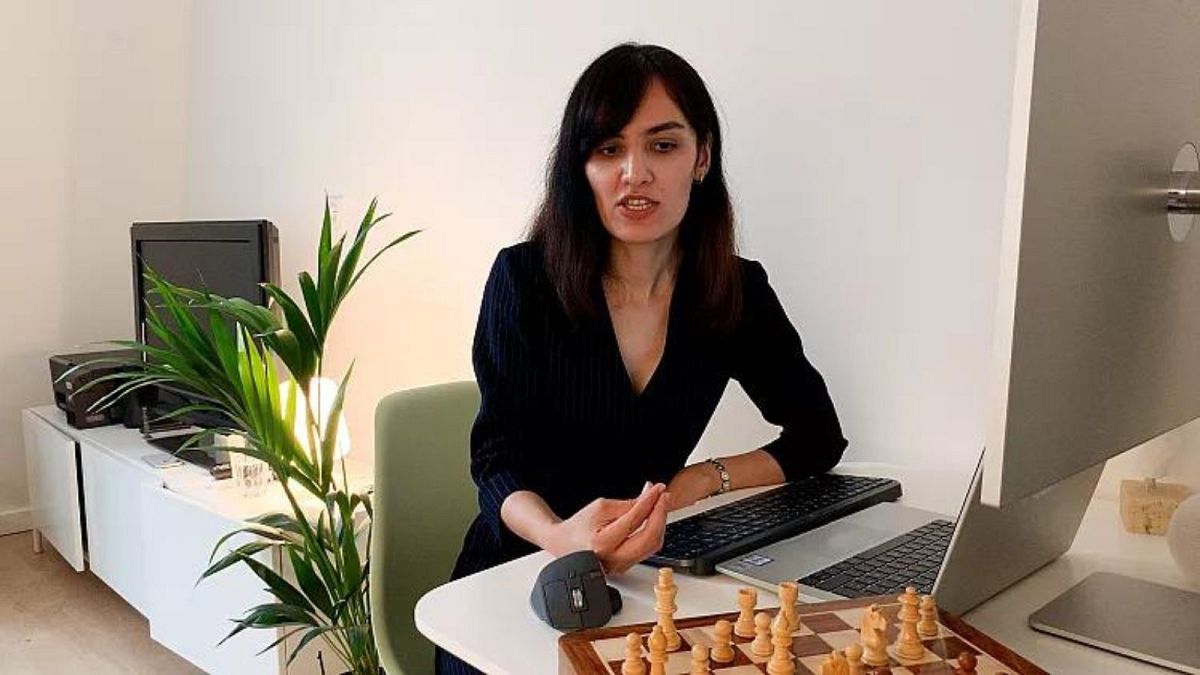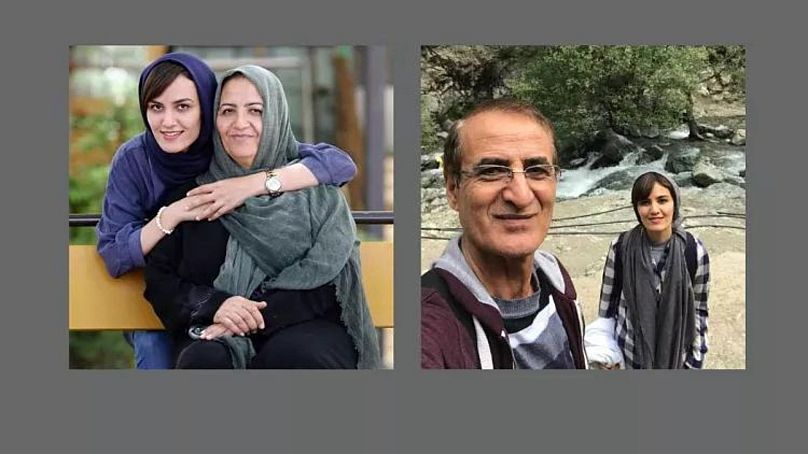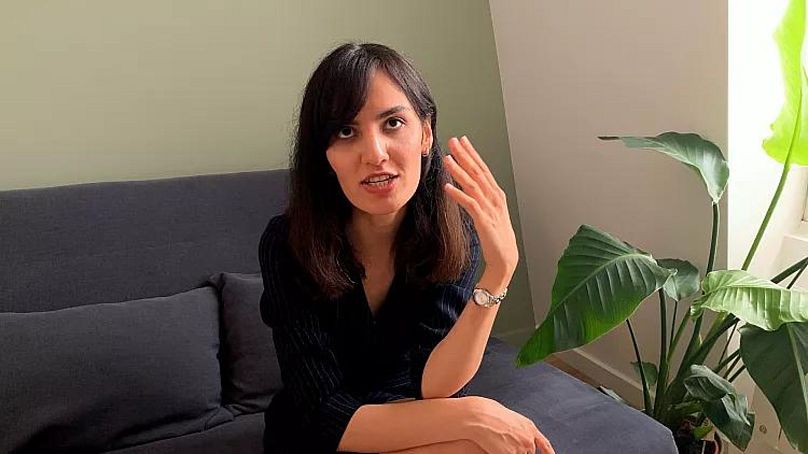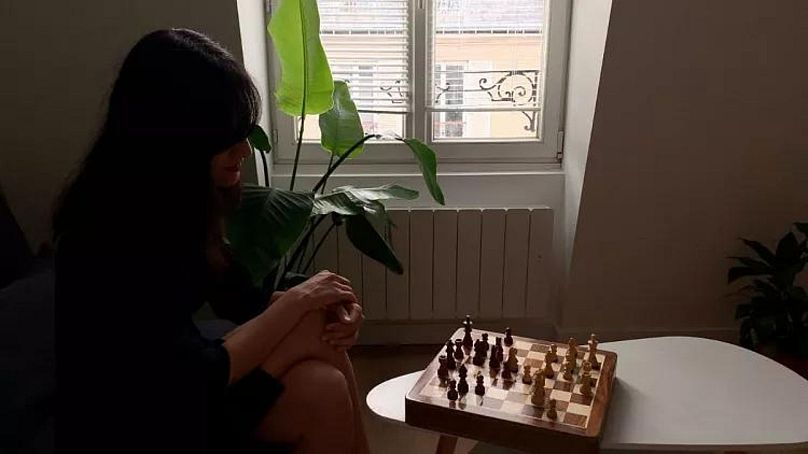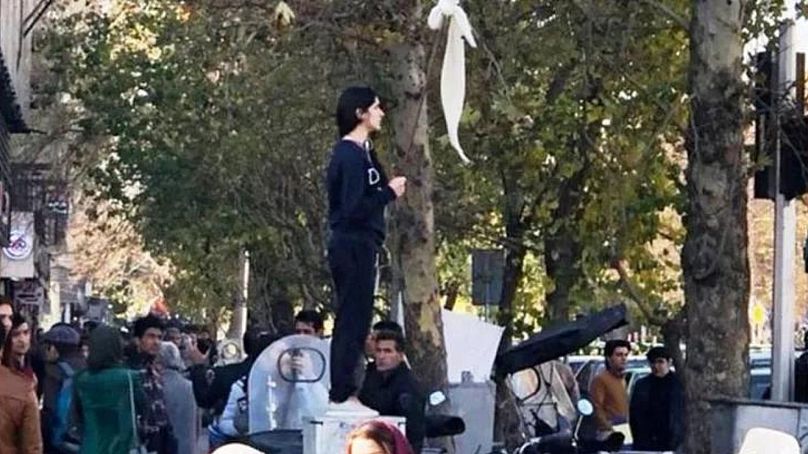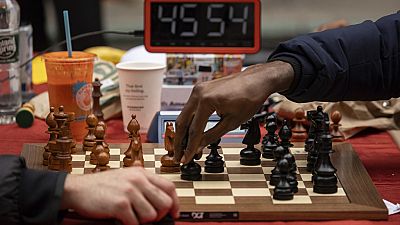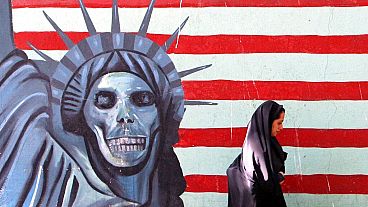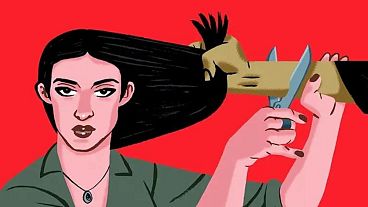Mitra Hejazipour: "Mehsa Amini's death was the beginning of the end of this regime. We know that during these years, many people have been killed and imprisoned by this regime, but this was a turning point for Iran."
Iranian chess grandmaster Mitra Hejazipour made headlines in 2020 when she was expelled from the Iranian women's national chess team for refusing to wear the mandatory hijab.
She now lives in Paris and recently became the French women's champion in the lightning blitz competition. She has been a French citizen for a few months and will probably play in the French women's national team in the future. Currently, Hejazipour works for an engineering company in Paris, having studied software engineering in France.
We met up with Hejazipour in Paris to talk about her decision to abandon the mandatory hijab and how Vida Mowahed - the young girl who, five years ago, decided to hang her scarf on a stick near the Revolution Square in Tehran - has impacted her personal life.
Can you tell us about your first encounter with the mandatory hijab?
Mitra Hejazipour: Since I grew up in a religious and traditional family, accepting hijab was a normal thing for me. But the first time I was told that you must wear this mask, I did not like it and felt bad. When we left the country and travelled to other countries, I saw that female athletes sometimes fell behind because of the mandatory hijab and had to work harder to make up for the lost points. Of course, in chess, the hijab is less of an intervention, but as soon as they impose the hijab on you and keep repeating it, it gets on your nerves.
Mandatory hijab is a double pressure, especially when you don't believe in something from the bottom of your heart and you think you have to accept what you don't accept.
I also remember that I was nine years old and I was second in the world under 10 girls chess tournament. A German chess-playing boy of my age wanted to shake my hand to congratulate me, but my manager told me that it was not right."
Your trips were often monitored by security forces. Can you tell us about those experiences?
Surveillance was everywhere, they were trained to be with us and monitor everything. They kept warning us. I remember my first foreign trip with the youth team, when the security forces checked that we ate halal food and that we wore loose-fitting clothes. They kept reminding me to wear hijab. We could not even leave the hotel without their permission. Everywhere you turned, they were present and all our behaviour was monitored.
Tell us about your decision to attend the Moscow chess tournament without the mandatory hijab?
In December 2019, I participated in the Moscow competition without a hijab. Of course, before that I also wrote a text on Instagram and supported the women of Elkhebal Street. When the women of the revolution took off the headscarf, many people criticized them. This made me angry and I wanted to support them. But they called me and my family on behalf of the federation and threatened me."
What threats?
They told me to delete this post quickly. But I had made my decision and I was angry and I didn't answer the phones. My mother was called and she told me crying that they might arrest me. They were very scared. That's why I had to take that post down.
How did you come to the decision to appear in the Moscow chess tournament in 2019 without a hijab?
At that time, I was playing in a club in France and I went to Moscow directly from France. Since the beginning of the competition, I used to travel everywhere without hijab. Probably the teammates were in contact with the federation and the story had reached their ears.
First, they called very simply and said that you should wear hijab and if you don't, they may boycott the federation. The head of the federation sent me a message saying that you must observe your hijab. He said, "It's very important for us, otherwise we'll throw you out of the tournament and you won't be able to play anymore." Threats like that. But I had made my decision and I wanted to support Vida Mowahed and the women of Elkhebal Street, and deal with the issue of compulsory hijab.
After I played without a hijab, the head of the federation made a statement and said that I was kicked out of the national team and that I will not be able to play for the rest of my life.
Did you inform your family at the time that you weren’t going to appear with a hijab?
No, this was a personal decision. As I said, I had not talked to my family. I knew that this decision had consequences, but I wanted not to drown myself in it so that they would not stop my decision.
What was the reaction of other chess players?
I was not supported - at least among chess players. They almost cut off contact with me. I only had a relationship with Sara Khadim al-Sharia and we used to talk to each other. Sara recently decided to participate in the same competitions without hijab and left the country.
What of the stereotypes outside of Iran – how have you experienced your life in France?
Although I carry those stereotypes here too, the experience I had made me get out of these frameworks and think more easily and set higher goals for myself and be sure that I can achieve my goals. Here you think, wanting is being able. Here, women are not considered the second gender. And I can draw important goals for myself and try to achieve them.
What was the impact of Vida Mowahed and the women of Elkhebal Street on changing your approach to the hijab issue?
When Vida Mowahed went to the electrical box near the Revolution Square in Tehran, took off her hijab and tied a scarf on a stick, her decision had a great impact on me. His work was shocking to me. I was asking myself why I didn't protest against this forced pressure all these years and why I was with the crowd and obeyed like everyone else. Her courage was very admirable to me. I was very impressed by Vida Mohed.
How did Mahsa Amini's death affect you?
The death of this young girl was very sad. It was a great sadness for her family and the people of Iran. But I think the killing of this young girl was a turning point for Iran. Mehsa Amini's death was the beginning of the end of this regime. We know that during these years, many people have been killed and imprisoned by this regime, but this was a turning point for Iran.
How do you see the return of Irshad Patrol (morality police) to the streets?
I have no doubt that this regime does not hesitate to take any measures to suppress people and prevent people from moving. But at the same time, I believe that the change that occurred. When the women of Iran tasted the sense of freedom from the Islamic Republic - this is irreversible. And once you have tasted the feeling of freedom, you will never go back. The regime can no longer stop this movement.
If you could say something to Vida Mowahed, what would it be?
I am very grateful to her. I appreciate her courage. Her action created a spark in the minds of people like me. For many years, we were used to wearing the compulsory hijab. It was not a question for us why we should wear it when we don't believe in it. Vida Mowahed made me understand that we should not lower our heads in front of forceful words. She made us understand that we can protest. Her work was very valuable to me and I will never forget it.
